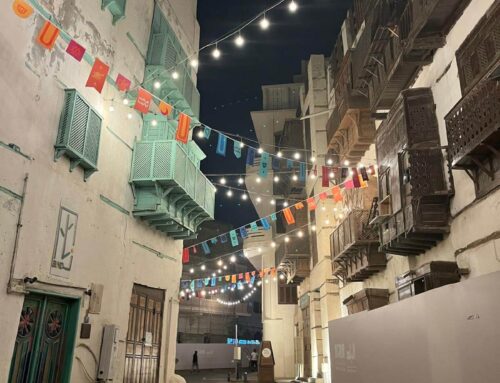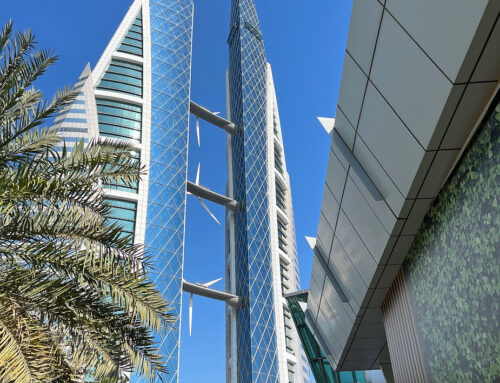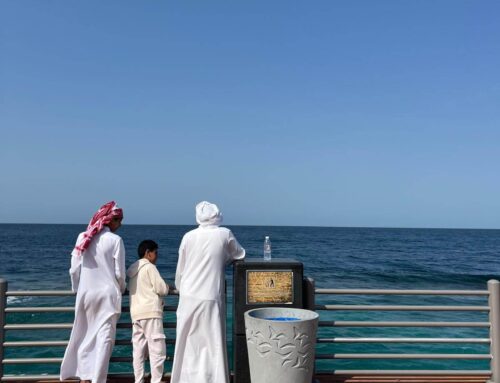Middle East: Tips to Explore and Enjoy
While we’ve only lived in the Middle East a short while, we’ve been able to travel quite a bit throughout the region and we have learned so much about this fascinating side of the world. Inshallah, we can dispense some of our knowledge to you. If you’ve ever considered a trip to this region of the world, hopefully this article can help you make a decision to book that trip!
The Middle East is a geopolitical region encompassing the Arabian Peninsula, the Levant, Turkey, Egypt, Iran, and Iraq. We’ve spent most of our time traveling in the GCC countries which stands for Gulf Cooperation Council, a political and economic alliance of six countries: Saudi Arabia, Kuwait, the United Arab Emirates, Qatar, Bahrain, and Oman. These countries often refer to themselves in this group because they are very similar but it’s fascinating that each country has such interesting differences that makes each country unique. See our travel guides on UAE (Dubai and Abu Dhabi), Bahrain, Kuwait, Oman, Saudi Arabia and Qatar. If you’re looking for more, see our travel guides to Turkey and Egypt as well.
Religion and Travel in the Middle East
The majority of these countries are Muslim which means that everyday practices may be different than you’re used to as the religion influences everyday life. To start, most countries are very conservative meaning women traveling there should not wear shorts, tank tops or tight fitting outfits. We recommend loose, flowy clothing that allows you to stay cool in the heat as well. Swimwear really depends on the country. The UAE seems to not have a strict requirement for appropriate beach wear as we saw all flavors for both men and women. But for instance in Kuwait, covering up at local beaches is expected. However, at private resorts or hotels bikinis are allowed. While the only place you are required to cover your hair is in a mosque, you will see many local women in a hijab to cover their hair or a niqab to cover their body and face with only the eyes being visible. Travelers are not expected to cover themselves with a hijab or niqab except at mosques. Check the requirements of the place you are visiting. Some mosques will provide a coverup free or charge while others a simple scarf will do the trick. Look up where you are going in advance to be prepared and not caught off guard when entering their holy places.
Religion also states certain dietary requirements like halal meat, no pork, and no alcohol. Depending on the country, the alcohol rule may differ. However you will see many people smoking shisha (flavored tobacco) from a hookah (water pipe) as this is allowed. Also the call to prayer is projected by loudspeakers from every mosque 5 times a day. When the call to prayer goes off, many stores and restaurants will stop their music in respect and turn it back on again once it is done. Depending on the country and city, you will see men leaving their post and going to the mosque to pray during this time. Some men aren’t able to leave their post so they will do their prayers on a mat in their shop. If this happens, just wait a few minutes until they are done, and then go on with business like usual.
Regarding the time of year you travel, do your research before you travel. Ramadan is the holy month based on the lunar calendar that changes by about two weeks every year. During this month, Muslims cannot eat or drink between sunrise and sunset. This means many restaurants are closed during the day and only open for dinner. In terms of how non-Muslims and travelers are impacted with food and drink restrictions during Ramadan is different in each country. Oman for example you will find more restaurants open but with shades on the windows so you can eat without being visible to those participating in Ramadan. Kuwait however is just as strict with travelers where you can’t even drink water in public or in your vehicle during sunrise hours. Either way, traveling to these countries during Ramadan may disrupt your plans as Ramadan can mean many business closures or time changes, lots of family time so time away from normal schedules, and restrictions on food and drink. Take all this into consideration when planning your trip.
Also do note that in a lot of these countries the weekend is Friday and Saturday with work week being Sunday through Thursday. Some countries like UAE have changed this to be more aligned with the business world but Fridays are still always a holy day. That means most services like restaurants, public transportation, or shopping won’t be open until later in the afternoon on Fridays.
Climate and Geography in the Middle East
These countries tend to be exactly what you think of when you think of the hot Middle East desert countries. There is a lot of sand. The houses are typically beige/tan to blend in and to not absorb more heat than needed. And generally there is limited natural greenery. It is wildly impressive how they are planting trees in the desert along the roads for beauty but it’s definitely not naturally lush. The weather can actually be quite pleasant depending on the time of year you go. Generally November through March tends to be the most pleasant with comfortable temperatures for traveling and sightseeing. The summer months (June, July, August) are to be avoided as outdoor activities are very limited. Some of Dubai’s biggest attractions like the Global Village or the desert safaris are closed May/June to Sept/October due to the heat. The high temperatures can get in the 40-50C (104-122F) which although a dry heat, it’s still really hot. If you just want a hot beach resort, you may be able to score some good deals as summer is the low season in most of these countries.
The Middle East isn’t nature focused like one would think. There isn’t much natural lushness here besides date palms. The landscape tends to be very sandy and rocky, very desert forward. However, Oman is an adventure paradise. With the water coastline, the mountains, and the Wadis, you’ll have endless outdoor adventures. The country has legal free camping so you can camp anywhere. It’s amazing for those carving the outdoors.
Food, Drinks and Smells
The food of the Middle East is pretty consistent in most of these countries. Chicken and rice are served everywhere (typically called machboos or majboos). You will see it spelled slightly differently but the meaning is the same. A mixed grill plate consists of grilled chicken or beef kebabs/skewers. Shawarma is shaved beef with onions and parsley or shaved chicken with pickles and garlic sauce, usually in a pita. Dips are everywhere like hummus, mutabal or babaganoush (smashed eggplant dip), labneh is a delicious cream cheese-like dip.
Whatever you do, try the dates. You may have had dates back home but they are nothing like the rich plump dates you’ll find in the Middle East. Dates are best just eaten on their own. They have a natural sweetness but luckily it doesn’t spike your blood sugar like a desert. You’ll be able to find dates in supermarkets, souq (stalled vendor market), and even on the side of the road. Do note that there is a huge range in quality and many different types of dates. For a premium experience, we recommend the medjool dates.
Everywhere you go, you will be offered Arabic Coffee. They serve the coffee in the cutest little cups. Every store front, local restaurant, and host has a pot waiting for guests. Don’t expect black coffee. Arabic coffee is a light roast which almost looks golden or blond. They also add cardamom which gives it a very distinct aroma. The coffee itself is very bitter so they will likely serve the Arabic coffee with a sweet date to balance the bitter coffee.
Speaking of aromas, you will smell a distinct smell of incense as you walk through the malls, past people, and in the markets. Interestingly enough, each country has a different smell to it. For example, Oman boasts the fragrant frankincense while Kuwait has a distinct oud. I never thought I’d be able to tell the difference but the more time we spend here, the more we can enjoy the difference. It’s very pleasant to smell the incense and Arabic coffee waft as you walk through the country. This area is well known for its perfumes and colognes. We’d also recommend, if you like the smell of any of them, buy it here as we haven’t found the same scents outside the country.
Safety in the Middle East
Originally our preconceived notion was that these countries would be unsafe. That is not at all what we’ve experienced. As a couple traveling, we’ve never felt safer. We’ve left laptops, cell phones, and wallets at cafe tables and no one touches or steals your things. I’ve never felt threatened or endangered walking the streets or being here. In fact, you will meet some of the nicest people. We’ve been invited to dinner with a stranger in Oman and even to family meals in Kuwait. The people are warm and welcoming. With that said, please be cautious of the culture and follow their rules while visiting their countries. You are a guest in their country and your goal is to experience the culture, not change it.
Language
Most people speak English or enough that you can get by but as with all places a few words in Arabic go a long way to show the host countries you are trying. Yalla (let’s go), inshallah (God willing, used like hopefully) and shukran (thank you) are great places to start. Something I didn’t realize until we moved here is that each country and region have their own dialect/version of Arabic. Even though technically all the languages are Arabic, they are so different that even native speakers from different countries can have a hard time understanding each other.
Shopping
The original market in Arabic is souq or souk. It’s the older style of stalls with vendors slinging goods. These markets are where you can negotiate the price and haggle a deal. Most cities have one souq area which is a good place to buy souvenirs. Modern cities now also have very large and very elaborate malls with high end luxury band names and experiences. Malls are a great place to go to beat the heat and grab a bite to eat. For an out of this world mall experience, I’d definitely recommend The Avenues in Kuwait, Dubai Mall in UAE, and Al Hazm in Doha. In terms of prices, we found most of these malls to be more expensive than our normal in the US so unless you can’t find it anywhere else, I’d recommend more window shopping.
Transportation in the Middle East
Transportations varies depending on the country and activities you want to do. For ride sharing, the Careem app works in most countries but Oman and Qatar. Uber generally exists in all of them as well but is not as widely used.
- Dubai – no need for a car as all the attractions are right off their metro system. There are a few things that are farther away, but take a taxi when needed. Renting a car can get cumbersome as parking is expensive and you may sit in traffic longer.
- Abu Dhabi – this one is a toss up. We took the airport bus into the city and walked most of it but needed to take a taxi to a few of the sites out of walking distance. The city is small though, so we don’t recommend renting a car unless you are leaving or need it for a specific activity.
- Oman – rent a car for sure. Check out our link here for more information on this but Oman does not have a good public transportation system, no ride sharing apps, but there are taxis. Getting around will be very difficult without a car. Since their roads are wonderful and there is plenty of free parking, driving yourself is the way to go here.
- Bahrain – while it is a smaller country, we ended up renting a car for a day to see the whole island and so glad we did. You don’t need a car the whole time as you can walk to the malls and souq if you are staying downtown.
- Qatar – has a beautiful metro system that is so cheap to use. We found that since most of the tourist things to do are along the coast, the metro runs close enough to most destinations. If you need to go outside the metro lines, taxis are easy to call.
- Egypt – whatever you do, do not rent a car here. Traffic and driving are insane and will cause so many headaches. Rent a driver to get you around to all the places you need to go. You will thank us later for this recommendation!
- Kuwait – while there is a bus system, it’s hard to navigate as buses don’t stop at every stop every time. Taxis are readily available but they are definitely on the more expensive side. Most places have free parking so renting a car for your trip might be the best way to go.
- Turkey – If you are only going to Istanbul, stick with just the metro and bus system. However, if you plan to visit other cities outside of Istanbul, then yes we definitely recommend renting a car. We did a month-long road trip throughout Turkey (see link to those recommendations here) and they were some of the best roads we’ve ever driven on!
Currency
- UAE, Oman, Bahrain, Qatar, Kuwait – overall you can get away with doing the trip with just a credit/debit card to pay for all your expenses as cards and e-payments are accepted everywhere. The small convenience stores will even take e-payments. It is nice to have a few smaller bills if you are going to negotiate in the souq for souvenirs. Also if you go outside the main cities, cash is more expected.
- Egypt – you cannot do Egypt without pulling out cash. The tipping culture is strong (see post here for more information). But do make sure to not pull out too much money as you will not be able to exchange back when you leave. ATMs only allow you to pull out a small amount daily anyways. Credit cards were accepted at larger places, but cash is king in Egypt.
- Turkey – Istanbul accepts credit cards at most places but having cash for small purchases is helpful, especially when bargaining in markets. Currently Turkey’s currency is falling rapidly so you will see many menus or price lists with scratched out and updated prices. Also government run tourist attractions only list their prices in Euros as it doesn’t change as much as the Lira.
Overall
Overall the Middle East has so much to offer. If you want the new sparkly modern cities with world record holding buildings, you can go to Dubai. If you are craving the ancient wonders of the world that only Egypt can provide, check out our link here. However, if you want adventure and outdoor paradise, click here for more recommendations on Oman. You really can’t go wrong. Book a trip and be surprised by all the amazing things you’ll experience here in the Middle East!
Discover more from Penley Perspective
Subscribe to get the latest posts sent to your email.


















